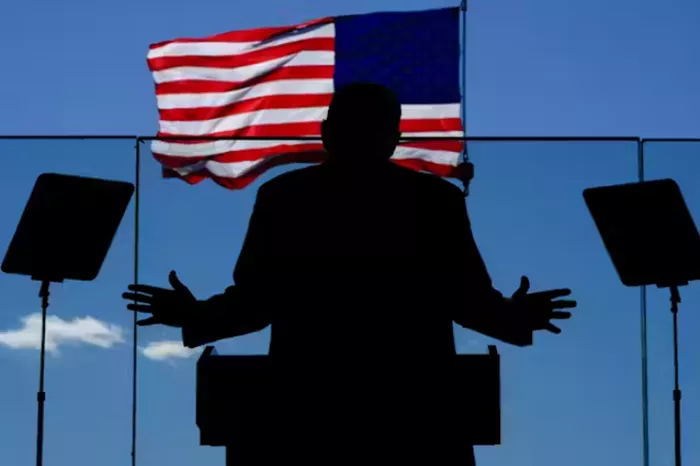Once a party that embraced immigration, the Republican Party’s stance has dramatically changed over the years. Historically, Republicans advocated for pathways to citizenship for undocumented immigrants and viewed them as vital contributors to American society.
In January 1989, Ronald Reagan delivered his final presidential address, celebrating immigrants as key to making America “a nation forever young, forever bursting with energy and new ideas.” Today, however, the party’s rhetoric, especially under Donald Trump, has shifted to a more hostile tone towards immigrants. Trump has dehumanized undocumented immigrants, calling them “animals” and suggesting they are “poisoning the blood of our country.”
During this year’s presidential campaign, Trump and his running mate, JD Vance, perpetuated a false narrative about Haitian immigrants in Springfield, Ohio, claiming they were responsible for eating pets. Perhaps most alarmingly, Trump has promised to initiate “the largest deportation operation in the history of our country” if elected.
Historical Context of Immigration Policies
Nativism, or anti-immigrant sentiment, has been present in American politics for many years. In 1924, restrictive immigration quotas were introduced based on race and national origin, aiming to establish America as a white, Anglo-Saxon, Protestant nation. Notably, there were no restrictions on immigrants from the Western Hemisphere, as industries like agriculture and railroads relied on workers from Mexico.
In 1965, the quota system was replaced with visa preferences for family and employment-based migrants, along with refugee slots. However, the 1970s saw an increase in undocumented immigration due to violence and economic instability in Central America. Scholar Leo Chavez notes that in the late 1980s and early 1990s, a “Latino threat narrative” emerged in media discussions about immigration, often amplified by Republican politicians seeking electoral advantage.
This negative discourse coincided with rising income inequality, a byproduct of neo-liberal policies championed by Reagan and others.
Republican Rhetoric on Immigration
In the early 20th century, Democrats often supported restrictive immigration policies. However, Republicans, backed by business interests, favored easier migration and increased legal immigration. Leading conservative figures promoted a vision of immigrants as hard-working individuals striving for better lives, contributing to the economy and national prosperity.
Reagan, a key conservative figure, opposed building a border wall and favored amnesty over deportation. In 1986, Congress passed an immigration act that strengthened border security while allowing 2.7 million undocumented immigrants, primarily Latinos, to gain legal status.
By the early 2000s, President George W. Bush and Senator John McCain sought bipartisan support for a bill to tighten border enforcement while legalizing about 12 million undocumented immigrants. However, the bill failed.
Despite a majority of Americans wanting lower immigration levels during this time, many Republicans continued to support immigrant-friendly policies.
The Rise of Restrictionist Rhetoric
Around 2009, the Tea Party movement shifted political rhetoric, bringing border security and anti-immigrant sentiments to the forefront. This led many Republicans to adopt xenophobic language and support laws targeting illegal immigration, despite a decline in undocumented immigrants during this period, from 12.2 million in 2007 to 10.7 million in 2016.
In this context, Trump launched his presidential campaign in mid-2015, promising to “build a great wall” and accusing Mexico of sending “rapists” and “criminals” to America. His campaign rhetoric was marked by anti-Mexican remarks and Islamophobic visa policies, which played a central role in his electoral success.
As president, Trump adopted a “zero tolerance” policy toward undocumented immigration, resulting in a family separation policy that tore children from their undocumented parents at the border. His administration also drastically reduced legal immigration and refugee intake while implementing travel bans for individuals from Muslim-majority countries.
Policy expert David Bier observed that the focus of Republican lawmakers shifted from addressing illegality to significantly reducing the number of foreigners in the United States. Trump’s approach included overtly racial overtones, such as his remarks questioning why the U.S. should accept immigrants from “shithole countries” while expressing a preference for immigrants from Norway.
Immigration as an Election Issue
From 2021 to 2023, there was a surge in undocumented crossings at the U.S.-Mexico border due to natural disasters, economic hardships, and violence in several Latin American and Caribbean nations. Many recent arrivals sought asylum.
While numbers have decreased in 2024, immigration remains a top concern forvoters, particularly in swing states like Arizona. Trump’s immigration promise was clear at the Republican National Convention, where delegates displayed signs calling for “Mass Deportations Now.”
The Trump-Vance ticket has blamed undocumented immigrants for a wide range of economic and social issues, framing them as a dangerous presence that cannot integrate into American culture. However, Trump has simultaneously obstructed border security legislation, suggesting that chaos at the border serves his interests.
Trump’s nativist agenda now extends to all forms of immigration, pledging to limit legal immigration as well. This shift in rhetoric has significantly affected public opinion. Between 2016 and 2024, support for deporting undocumented immigrants rose from 32% to 47%. By July 2024, 55% of Americans favored reducing immigration levels, reflecting a 14-point increase in just one year.
Many Americans no longer view immigration as a source of vitality and renewal. Instead, they perceive immigrants, influenced by Trump’s rhetoric, as an existential threat to the country’s future.
Related topics:
- How Immigration Can Address U.S. Housing Needs Strategically
- Improvements to the Nonimmigrant Visa Appointment Booking Process
- EU Suspends Financial Aid and Visa Liberalisation for Georgia


